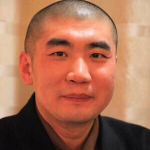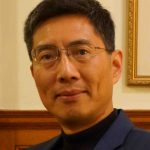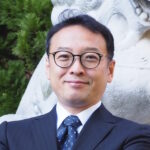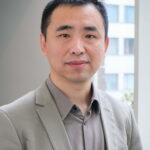We are pleased to announce the Glorisun Global Network for Buddhist Studies!
The Glorisun Global Network for Buddhist Studies received funding from the Glorisun Charitable Foundation and officially launched in January 2017.
The Glorisun Charitable Foundation was founded and funded by Dr. Charles Yeung, the Founder and Chairman of Glorious Sun Enterprises Limited, on July 27, 2005, with Dr. Yeung acting as the Principal Advisor to the Glorisun Global Network for Buddhist Studies. A major aim of the foundation consists in promoting Buddhism and Buddhist studies globally.

Dr. Charles Yeung (Principal Advisor), from Huizhou, Guangdong, is the recipient of the title Justice of the Peace of Hong Kong and the Golden Bauhinia Star medal, awarded by the government of the Hong Kong Special Administrative Region. Dr. Yeung is currently the chairman of Glorious Sun Group while also serving several social positions: Dr. Yeung is the Permanent Honorary President of the Chinese General Chamber of Commerce of Hong Kong, the Permanent Honorary President of Hong Kong Culture Association, the Chief President of the Federation of Hong Kong Community Organisations, and a member of the governing board of Jinan University, Guangzhou.
Dr. Yeung arrived in Hong Kong in 1967. Starting from scratch, he created his first company in 1974; and in 1978, he returned to Mainland China to invest and open factories, including clothing factories, clothing chain stores and real estate businesses. The corporation experienced four transformations: it evolved from a clothing-fabrication business to become a chain clothing retail store, and was later re-invented as a real-estate and a financial investment business. Glorious Sun Group has a net asset of over 20 billion Hong Kong dollars, and owns real-estate, financial and clothing businesses in the United States, Canada, Singapore, Australia, New Zealand, Mainland China and Hong Kong. Since his career success, Dr. Yeung has been advocating that a modern entrepreneur should shoulder the “social responsibilities of the enterprise”, and should see it as his/her own duty to be of service for the world. Over the course of many years, Glorious Sun Group, led by Dr. Yeung, has donated over 3.1 billion Hong Kong dollars for remedying poverty, supporting education and relieving natural disasters in Hong Kong, Mainland China and elsewhere in the world.
As the global importance of East Asia grows and its cultural identities are asserted ever more strongly, scholars in many fields are recognizing the vital importance of studying Buddhism and East Asian Religions. Scholarship over the past decade has yielded a much richer understanding of both historical and contemporary religious phenomena, partly thanks to the discovery of texts and artifacts, and increased opportunities for ethnographic observation. Despite these advances, many of the disciplinary divisions that have configured the modern academy continue to act as barriers to innovative research on Buddhism and East Asian Religions. Scholars trained in different disciplines and housed in different departments at academic institutions continue to work in relative isolation, with few able or willing to address their subjects from different disciplinary perspectives. Similarly, despite the relative ease of communication and transportation in facilitating dialogue, cultural, linguistic, and geographic boundaries continue to separate academic communities between and within Europe, North America, and East Asia. The gulf dividing East Asian scholars from colleagues in Europe and North America is often perceived as particularly wide. While technology has begun to mitigate some of these challenges, the extensive and long-term collaboration this proposed network entails will help forge enduring professional connections among scholars of many disciplines who make their permanent academic homes at North American, European, and East Asian institutions.
For this purpose, leaders of the programs on the studies of Buddhism and East Asian Religions at the following universities in Europe, North America and East Asia, proposed to set up this informal, legally unbound networking program. Institutional and financial support are provided by both participating units at these member universities and the China Britain Trust for the Promotion of Buddhist Studies, a non-profit foundation. Under the leadership of Dr. Charles Yeung, who has also kindly acted as the Chief Advisor, the network will academically engage the scholars affiliated with these participating units at these member universities (in the order of entering this network):
- Peking University, China
- University of British Columbia (UBC), Canada
- University of Hamburg, Germany
- Princeton University, USA
- University of Oxford, UK
- University of Cambridge, UK
- Yale University, USA
- University of California, Berkeley (UC Berkeley), USA
- Harvard University FAS CAMLab, USA
- University of Hong Kong (HKU), China
- Hebrew University of Jerusalem, Israel
- Zhejiang University, China
- University of Tokyo, Japan
- Institut national des langues et civilisations orientales [Inalco], France
The Foundation will provide different types of financial support for the above listed members. For each of the participating units at these member universities, located both in Europe (Cambridge, Hamburg, Oxford, and Inalco), North America (Harvard, Princeton, Yale, UC Berkeley and UBC), and the Middle East (HUJI), the Foundation will provide support annually (for the four universities located in East Asia – Peking University, the University of Hong Kong, Zhejiang University and the University of Tokyo – the funding is slightly different), for the following programs:
- Visiting professorships for senior scholars affiliated with a university in Chinese-speaking countries or regions, enabling them to spend three to twelve months in Glorisun member university in Europe or North America. There, they will regularly interact with the faculty and students working on Buddhism and East Asian cultures, in the form of weekly or biweekly meetings with them. These meetings will include reading one or one group of East Asian religious texts, as well as several public lectures.
- Fellowships for advanced graduate students or postdoctoral fellows with a university in Chinese-speaking countries or regions, enabling him or her to spend six to twelve months in the participating units at these member universities in Europe or North America. There, he or she will constantly interact with its faculty and students working on Buddhism and East Asian cultures, including attending seminars and lectures.
- Graduate fellowships for Chinese Buddhist Studies, enabling students to spend three to six months in Chinese-speaking countries and regions doing research.
- Conference funding for a conference at each institution on Buddhism and East Asian cultures.
- Lecture Series funding to sponsor three lectures on Buddhist Studies.
- Graduate student fellowships on East Asian Buddhism to support students from Chinese-speaking countries and regions who are regularly enrolled in graduate programs at participating units at these member universities;
- Journals and Book Series: annually editing and publishing two issues for each of two journals (one Chinese and the other English), and in total of 10 or more volumes for four book series;
- Summer Intensive Programs: An annual summer Intensive programs for Buddhist Studies, held alternately at Glorisun partner universities.
In addition to these activities, the network also produces journal and book publications. For more information, visit the Publications page.
The Peking University Research Center for Buddhist Texts and Art 北京大學佛教典籍與藝術研究中心 and UBC FROGBEAR Project are responsible for coordinating the network and managing communications between the donor and partner universities, as well as organizes the network’s annual donor reports. Decisions are guided by a Steering Committee comprised of representatives from the participating units at these member universities:
Zhan Ru (Peking University), Board Director

ZHAN Ru is a professor in Peking University’s School of Foreign Languages, and the director of the PekingU Research Center for Buddhist Texts and Art. Additionally, he is a vice president of the Buddhist Association of China and vice president of the Peking University Oriental Research Institute. His areas of research include: Buddhist and Buddhist literature, the Indian Ministry of Buddhism, Dunhuang Buddhism, Buddhist system
Jinhua Chen (University of British Columbia), Associate Board Director

Jinhua Chen is a Fellow of the Royal Society of Canada, and a professor of East Asian intellectual history (particularly religions) at the University of British Columbia, where he also served as the Canada Research Chair in East Asian Buddhism (2001–2011). He has received numerous grants and awards from major funding agencies for his work on East Asian state-church relationships, monastic (hagio-)biographical literature, Buddhist sacred sites, relic veneration, Buddhism and technological innovation in medieval China, and Buddhist translations. Dr. Chen has published six monographs, edited and co-edited over thirty books, and authored nearly eighty book chapters and journal articles.
Board Members:
Steffen Döll (University of Hamburg)
 Steffen Döll is Numata Professor of Japanese Buddhism and Co-Director of the Numata Center for Buddhist Studies at Hamburg University. Trained in Japanese Studies, Chinese Studies, and Religious Studies at Munich and Kyoto Universities, his research focuses on Buddhist philosophy and history, the processes of cultural transfer in East Asia, and Japanese intellectual and literary traditions. His publications include a 2005 monograph on the Kyōto school philosopher Ueda Shizuteru 上田閑照 (1926–2019), a 2010 monograph on Chinese emigrant monks and their involvement in the institutional, dogmatic, and praxeological development of Japanese Zen Buddhism, as well as a number of contributions on issues related to the history of East Asian religions and cultures.
Steffen Döll is Numata Professor of Japanese Buddhism and Co-Director of the Numata Center for Buddhist Studies at Hamburg University. Trained in Japanese Studies, Chinese Studies, and Religious Studies at Munich and Kyoto Universities, his research focuses on Buddhist philosophy and history, the processes of cultural transfer in East Asia, and Japanese intellectual and literary traditions. His publications include a 2005 monograph on the Kyōto school philosopher Ueda Shizuteru 上田閑照 (1926–2019), a 2010 monograph on Chinese emigrant monks and their involvement in the institutional, dogmatic, and praxeological development of Japanese Zen Buddhism, as well as a number of contributions on issues related to the history of East Asian religions and cultures.
Stephen Teiser (Princeton University)

Stephen F. Teiser is D. T. Suzuki Professor in Buddhist Studies and Professor of Religion at Princeton University. His work traces the interaction between cultures along the silk road using textual, artistic, and material remains. He is interested in the transformations of Buddhism throughout Asia and focuses on Chinese-language materials. His most recent book is a monograph on Buddhism and the study of ritual, Yili yu fojiao yanjiu 仪礼与佛教研究 (2022). Other books include an English translation of Chunwen Hao’s Dunhuang Manuscripts: An Introduction to Texts from the Silk Road (2020); Reinventing the Wheel: Paintings of Rebirth in Medieval Buddhist Temples (2006), awarded the Prix Stanislas Julien by the Académie des Inscriptions et Belles Lettres, Institut de France; The Scripture on the Ten Kings and the Making of Purgatory in Medieval Chinese Buddhism (1994); The Ghost Festival in Medieval China (1988); and several edited volumes. In 2014 he received the Graduate Mentoring Award from Princeton’s McGraw Center for Teaching and Learning, and in 2022-23 he was Old Dominion Professor in Princeton’s Humanities Council.
Kate Crosby (University of Oxford)
 Kate Crosby is the Numata Professor of Buddhist Studies at the University of Oxford. She moved to Oxford from King’s College London, and previously held posts at the universities of Edinburgh, Lancaster, Cardiff and SOAS. She studied Sanskrit, Pali and other Buddhist languages, Indian religions and Buddhism at Oxford (MA and DPhil). She also studied at the universities of Hamburg and Kelaniya, as well as with traditional teachers in Pune, Varanasi and Kathmandu. She works on Sanskrit, Pali, and Pali-vernacular literature and on Theravada practice in the pre-modern and modern periods, including on the pre-modern meditation and its relationship to temporal technologies. Her publications include a translation and study of Śāntideva’s Bodhicaryāvatāra (with co-author Andrew Skilton, 1994); Mahābhārata: The Women and the Dead of Night (2009); Traditional Theravada and its Modern-Era Suppression (2013); Theravada Buddhism: Continuity, Identity, Diversity (2014); and Esoteric Theravada: The Story of the Forgotten Meditation Tradition of Southeast Asia (2020).
Kate Crosby is the Numata Professor of Buddhist Studies at the University of Oxford. She moved to Oxford from King’s College London, and previously held posts at the universities of Edinburgh, Lancaster, Cardiff and SOAS. She studied Sanskrit, Pali and other Buddhist languages, Indian religions and Buddhism at Oxford (MA and DPhil). She also studied at the universities of Hamburg and Kelaniya, as well as with traditional teachers in Pune, Varanasi and Kathmandu. She works on Sanskrit, Pali, and Pali-vernacular literature and on Theravada practice in the pre-modern and modern periods, including on the pre-modern meditation and its relationship to temporal technologies. Her publications include a translation and study of Śāntideva’s Bodhicaryāvatāra (with co-author Andrew Skilton, 1994); Mahābhārata: The Women and the Dead of Night (2009); Traditional Theravada and its Modern-Era Suppression (2013); Theravada Buddhism: Continuity, Identity, Diversity (2014); and Esoteric Theravada: The Story of the Forgotten Meditation Tradition of Southeast Asia (2020).
Noga Ganany (University of Cambridge)

Noga Ganany is an Associate Professor in Chinese Studies at the Faculty of Asian and Middle Eastern Studies at the University of Cambridge, United Kingdom, and a Fellow of Sidney Sussex College. Her main research interests are Chinese cultural history, religious practice in China, premodern Chinese literature, print culture and history of the book, travel and pilgrimage, and popular culture. Her current book project, Origin Narratives: Hagiographic Literature and Religious Practice in Ming China, examines the role of commercial publishing in propagating cultic reverence of saints, gods, and immortals among lay readers. Her second book project focuses on King Yama and Chinese conceptions of the afterlife. She is also currently working on a project on the fifteenth-century illustrated hagiography of the Buddha, Shishi yuanliu 釋氏源流. Her recent publications include “Religion in Ming Literature” (forthcoming), “Writing and Worship in Deng Zhimo’s Saints Trilogy” (Religions 2022), and “Journeys Through the Netherworld in Late Ming Hagiographic Narratives” (Late Imperial China, 2021). Dr Ganany is a board member of the Society for the Study of Chinese Religions (SSCR) and a board member of the Society for Ming Studies.
Eric Greene (Yale University)
 Eric Greene is an Associate Professor of Religious Studies. He specializes in the history of medieval Chinese Buddhism, particularly the emergence of Chinese forms of Buddhism from the interaction between Indian Buddhism and indigenous Chinese culture. Much of his recent research has focused on Buddhist meditation practices, including the history of the transmission on Indian meditation practices to China, the development of distinctly Chinese forms of Buddhist meditation, and Buddhist rituals of confession and atonement. In addition to these topics, he has published articles on the early history of Chan (Zen) Buddhism, Buddhist paintings from the Silk Roads, and the influence of modern psychological terminology on the Western interpretation of Buddhism.
Eric Greene is an Associate Professor of Religious Studies. He specializes in the history of medieval Chinese Buddhism, particularly the emergence of Chinese forms of Buddhism from the interaction between Indian Buddhism and indigenous Chinese culture. Much of his recent research has focused on Buddhist meditation practices, including the history of the transmission on Indian meditation practices to China, the development of distinctly Chinese forms of Buddhist meditation, and Buddhist rituals of confession and atonement. In addition to these topics, he has published articles on the early history of Chan (Zen) Buddhism, Buddhist paintings from the Silk Roads, and the influence of modern psychological terminology on the Western interpretation of Buddhism.
Robert Sharf (University of California, Berkeley)

Robert Sharf is D. H. Chen Distinguished Professor of Buddhist Studies in the Department of East Asian Languages and Cultures at the University of California, Berkeley. He works primarily in the area of medieval Chinese Buddhism (especially Chan), but also dabbles in Japanese Buddhism, Buddhist art, ritual studies, and methodological issues in the study of religion. In addition to his appointment in East Asian Languages and Cultures, he is Chair of the Center for Buddhist Studies at UC Berkeley. He also serves on the editorial boards of the Journal of the International Association of Buddhist Studies, the Journal for the Study of Chinese Religions, the Journal of Religion in Japan, and the Kuroda Institute Series published in conjunction with University of Hawai‘i Press.
Eugene Wang (Harvard University)

Eugene Y. Wang is the Abby Aldrich Rockefeller Professor of Asian Art at Harvard University. He concurrently holds positions in the departments of History of Art and Architecture, Study of Religion, Theater, Dance, and Medium, and Inner Asia and Altaic Studies. A Guggenheim Fellow (2005), he is the art history editor of the Encyclopedia of Buddhism (2004). His extensive publications range from early Chinese art and archeology to modern and contemporary Chinese art and cinema. His book, Shaping the Lotus Sutra: Buddhist Visual Culture in Medieval China (2005), explores Buddhist worldmaking; it received the Sakamoto Nichijin Academic Award from Japan. His current research focuses on cognitive study of art and consciousness as well as biocentric art that integrates visual, biological, and ecological systems.
He is also the founding director of Harvard CAMLab that explores the nexus of cognition, aesthetics, and multimedia storyliving, integrating humanistic research and sensorial-experiential staging of Asian cultural heritages.
Georgios T. Halkias (University of Hong Kong)
 Georgios T. Halkias is Associate Professor of Buddhism and the Director of the Centre of Buddhist Studies at the University of Hong Kong. He received his DPhil in 2006 from the University of Oxford focusing on Pure Land orientations in Tibetan contexts. His main research interests include the early transmission of Buddhism to Tibet, Himalayan Buddhism, Vajrayāna contemplative systems, and Buddhism and Hellenism in India and Central Asia. His book publications include, The Copper-Colored Mountain: Jigme Lingpa on Rebirth in Padmasambhava’s Pure Land (authored with C. Partsalaki, 2022), Pure Lands in Asian Texts and Contexts: An Anthology (ed. with R. Payne, 2019), Luminous Bliss: A Religious History of Pure Land Literature in Tibet. With an Annotated Translation and Critical Analysis of the Orgyen-ling golden short Sukhāvatīvyūha (2017/2013), among others. He is the co-editor-in-chief of the Oxford Research Encyclopedia of Buddhism.
Georgios T. Halkias is Associate Professor of Buddhism and the Director of the Centre of Buddhist Studies at the University of Hong Kong. He received his DPhil in 2006 from the University of Oxford focusing on Pure Land orientations in Tibetan contexts. His main research interests include the early transmission of Buddhism to Tibet, Himalayan Buddhism, Vajrayāna contemplative systems, and Buddhism and Hellenism in India and Central Asia. His book publications include, The Copper-Colored Mountain: Jigme Lingpa on Rebirth in Padmasambhava’s Pure Land (authored with C. Partsalaki, 2022), Pure Lands in Asian Texts and Contexts: An Anthology (ed. with R. Payne, 2019), Luminous Bliss: A Religious History of Pure Land Literature in Tibet. With an Annotated Translation and Critical Analysis of the Orgyen-ling golden short Sukhāvatīvyūha (2017/2013), among others. He is the co-editor-in-chief of the Oxford Research Encyclopedia of Buddhism.
Eviatar Shulman (Hebrew University of Jerusalem)

Eviatar Shulman is currently the Chair of the Department for Comparative Religion and member of the Department for Asian Studies at the Hebrew University of Jerusalem. His work focuses mainly on different aspects of Buddhist religion and philosophy, with special interest in recent years in Early, or more generally in Pāli, Buddhism. Among his many publications are Rethinking the Buddha: Early Buddhist Philosophy as Meditative Perception (Cambridge University Press, 2014), and Visions of the Buddha: Creative Dimensions of Early Buddhist Scripture (Oxford University Press, 2021). The latter work outlines a new approach to the composition of the early discourses (Suttas, Sūtras) attributed to the Buddha.
Yinggang Sun (Zhejiang University)

Studied at Beijing University (1996-2003) and Princeton University (2003-2009, Ph.D. from Department of East Asian Studies); Associate Professor of Medieval Chinese History at Fudan University (Shanghai, 2009-2016); Currently Professor of Medieval Chinese History (2016-), Dean of School of History (2021-) at Zhejiang University, Hangzhou; Visiting scholar to Tokyo University (2010) and Yale University (2015-2016).
Research Interests include medieval history (Northern and Southern Dynasties, Tang Dynasty) and History of Buddhism (especially Buddhism and Medieval Monarchship as well as Buddhism and the Silk Road). Currently work on how Gandharan Buddhism influenced Medieval Chinese History.
Norihisa Baba (University of Tokyo)

Norihisa Baba is a Professor at the Institute for Advanced Studies on Asia at the University of Tokyo. He received his Ph.D. in 2006 from the University of Tokyo. His research interests include the history and thought of Indian Buddhism and Theravāda Buddhism; the relationship between Sri Lanka and East Asia; and Modern Discourse of Buddhism. His approach is comparative using the Pāli, Sanskrit, Tibetan, Chinese, and Japanese texts. He has published several English language articles and Japanese books including The Formation of Theravāda Buddhist Thought: From the Buddha to Buddhaghosa (2008); Early Buddhism: Tracing the Buddha’s Thought (2018); and Buddhist Orthodoxy and Heresy: The Birth of the Pāli Cosmopolis (2022). He is recipient of several academic prizes such as the Japanese Association for South Asian Studies Prize, and the Japan Science Promotion Society Prize. He also serves on the editorial boards of the Journal of the International Association of Buddhist Studies.
Zhe Ji (Institut national des langues et civilisations orientales [Inalco])
Zhe Ji is Professor of Sociology and Holder of the Inalco-Sheng Yen Chair of modern and conte mporary Chinese Buddhism at the Institut national des langues et civilisations orientales (Inalco) in France. He is currently Head of the Department of Chinese Studies at Inalco, and Director of the Centre d’études interdisciplinaires sur le bouddhisme (CEIB). His main study areas are Buddhism and the relationship between religion and politics in modern and contemporary China. His publications include Religion, modernité et temporalité : une sociologie du bouddhisme chan contemporain (CNRS Editions, 2016), 二十世紀中國佛教的兩次復興 (co-edited with Daniela Campo and Wang Qiyuan, Fudan University Press, 2016), Making Saints in Modern China (co-edited with David Ownby and Vincent Goossaert, Oxford University Press, 2017), Buddhism after Mao: Negotiations, Continuities, and Reinventions (co-edited with Gareth Fisher and André Laliberté, University of Hawai‘i Press, 2019), 現代世界的思想者——齊美爾研究輯選 (co-edited with Ren Qiang, Commercial Press, 2021).
mporary Chinese Buddhism at the Institut national des langues et civilisations orientales (Inalco) in France. He is currently Head of the Department of Chinese Studies at Inalco, and Director of the Centre d’études interdisciplinaires sur le bouddhisme (CEIB). His main study areas are Buddhism and the relationship between religion and politics in modern and contemporary China. His publications include Religion, modernité et temporalité : une sociologie du bouddhisme chan contemporain (CNRS Editions, 2016), 二十世紀中國佛教的兩次復興 (co-edited with Daniela Campo and Wang Qiyuan, Fudan University Press, 2016), Making Saints in Modern China (co-edited with David Ownby and Vincent Goossaert, Oxford University Press, 2017), Buddhism after Mao: Negotiations, Continuities, and Reinventions (co-edited with Gareth Fisher and André Laliberté, University of Hawai‘i Press, 2019), 現代世界的思想者——齊美爾研究輯選 (co-edited with Ren Qiang, Commercial Press, 2021).
Program Co-Manager:
 Lina Wang (National Library of China/Peking University): wang_shuwen@126.com
Lina Wang (National Library of China/Peking University): wang_shuwen@126.com
Communications Officer:

Carol Lee (UBC): carol.lee@ubc.ca
